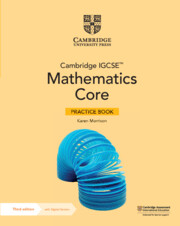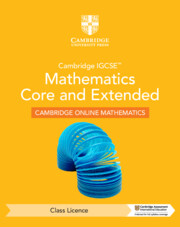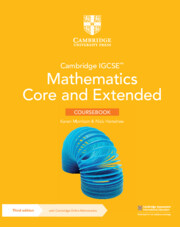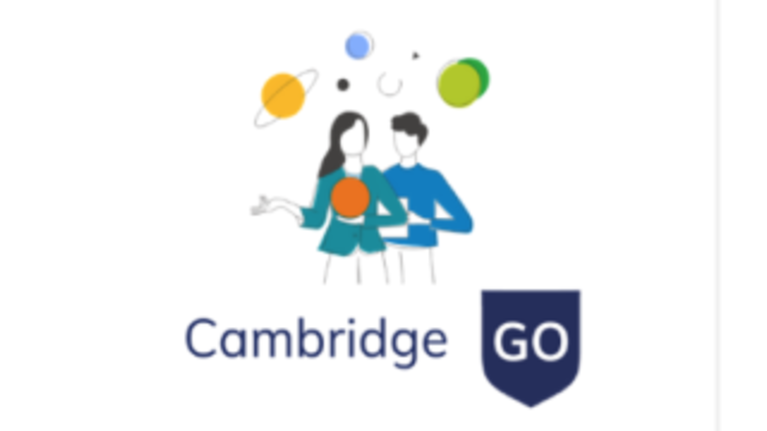The third edition fully covers both Core and Extended content through the ‘spiral’ approach, where students build on their previous learning as they progress through the course. In addition to a wealth of practice questions and support for English as a second language learners, we have included a number of projects to encourage students to put their theory into practice provided by NRICH – a collaboration between the Faculties of Mathematics and Education at the University of Cambridge. Answers are available on Cambridge GO.
Features
- Written by an experienced author and teaching team, who have written the previous first and second editions.
- Covers both Core and Extended parts of the syllabus in one book to help with differentiation in the classroom, with Extended content clearly signposted.
- ‘Mathematical connections’ feature boxes help learners make connections across different topics whilst working through the chapters of the book.
- ‘Investigation’ activities encourage students to extend their learning by investigating a real-life example, or by discussing it with classmates.
- New Project activities created by NRICH help students put their learning into practice and develop their problem solving and collaboration skills.
- Clear worked examples with visual representations aid learning of challenging areas.
- A wealth of practice questions help students develop key mathematical skills and help prepare for assessment.
- Support for English as a second language learners with defined key terms and a clear language of instruction.
- Answers are available on Cambridge GO.
Table of Contents
- Introduction
- 1. Review of number concepts
- 2. Making sense of algebra
- 3. Lines, angles and shapes
- 4. Collecting, organising and displaying data
- 5. Fractions, percentages and standard form
- 6. Equations, factors and formulae
- 7. Perimeter, area and volume
- 8. Introduction to probability
- 9. Sequences, surds and sets
- 10. Straight lines and quadratic equations
- 11. Pythagoras' theorem and similar shapes
- 12. Averages and measures of spread
- 13. Understanding measurement
- 14. Further solving of equations and inequalities
- 15. Scale drawings, bearings and trigonometry
- 16. Scatter diagrams and correlation
- 17. Managing money
- 18. Curved graphs
- 19. Symmetry
- 20. Histograms and cumulative frequency diagrams
- 21. Ratio, rate and proportion
- 22. More equations, formulae and functions
- 23. Transformations and vectors
- 24. Probability using tree diagrams and Venn diagrams
- Answers
- Glossary.
Advice on useful tools
Advice on useful tools, activities and timetabling from teachers experiencing school closures.
Cambridge GO
All our supporting resources have now moved to Cambridge GO – the new home for your Cambridge digital content.
Listen to our podcast
Listen to our podcast to discover teaching inspiration & advice from leading educational thinkers.








